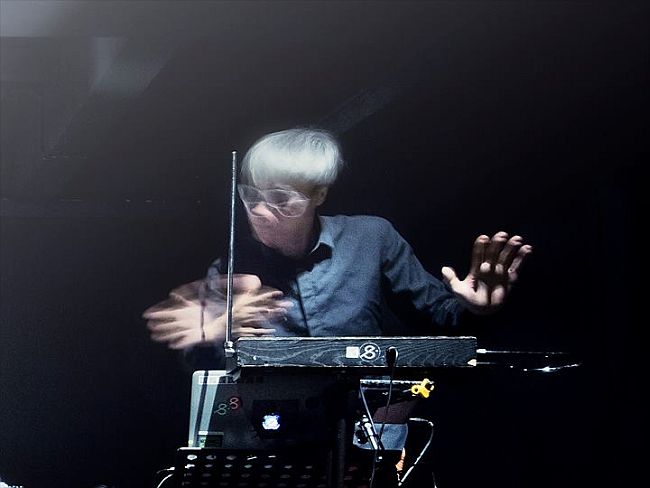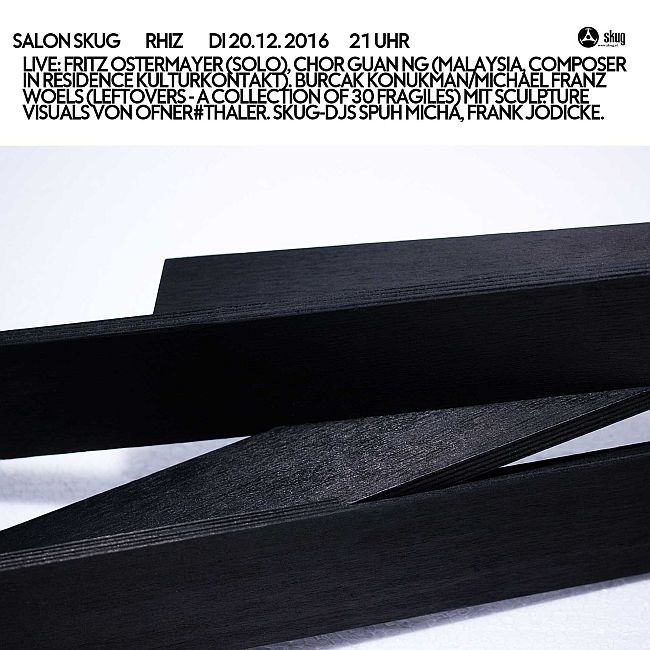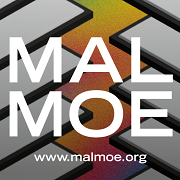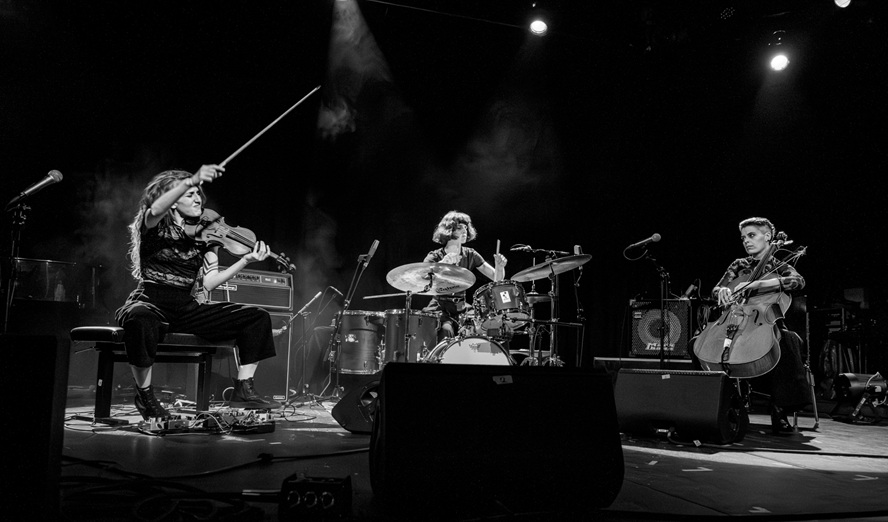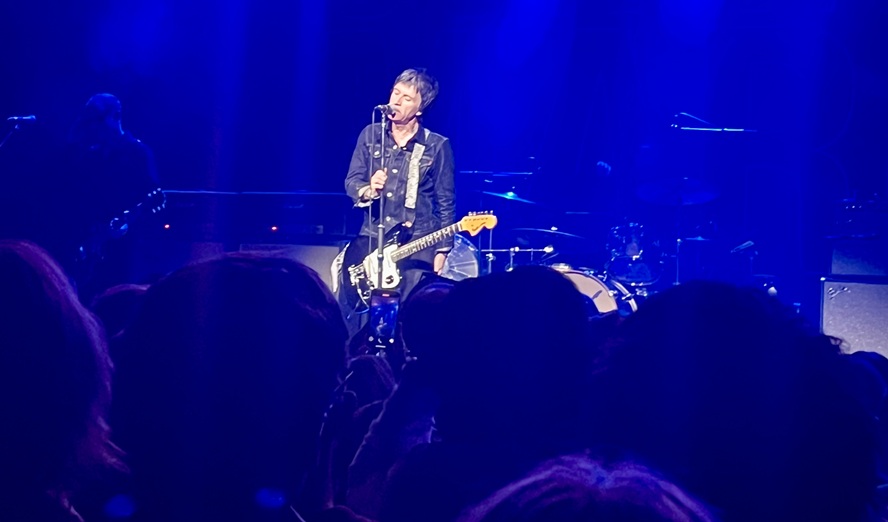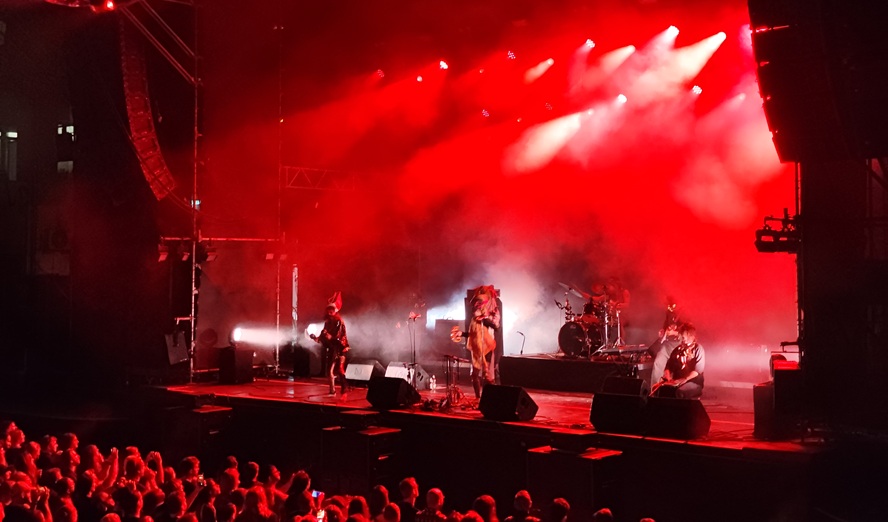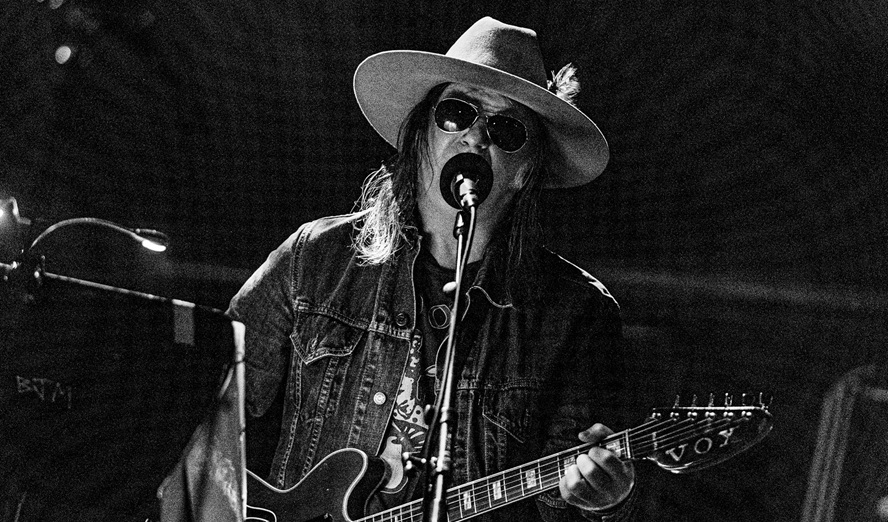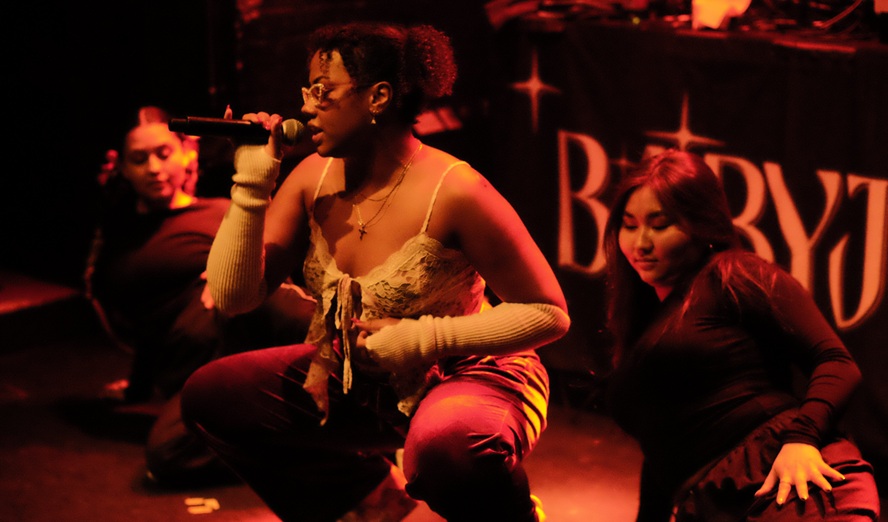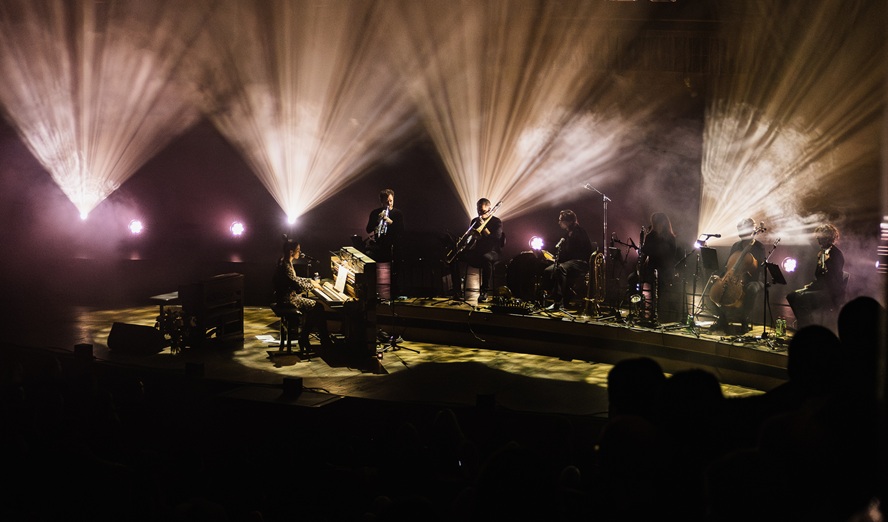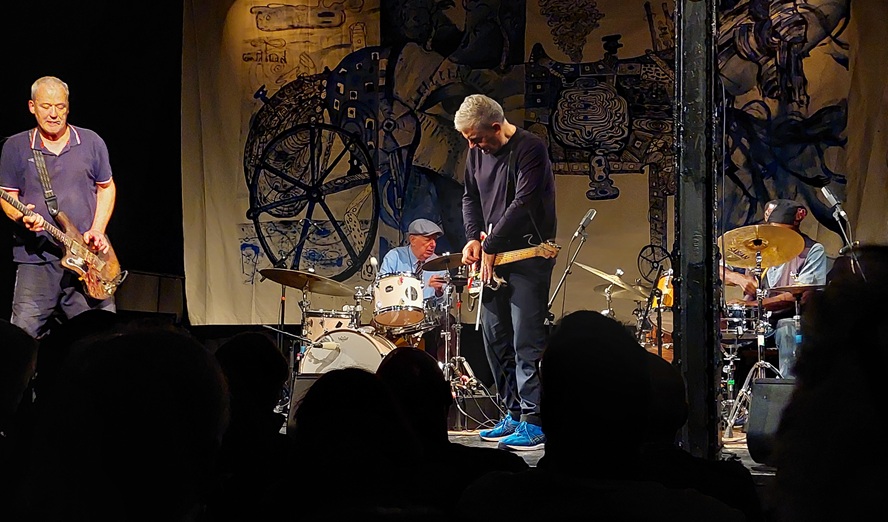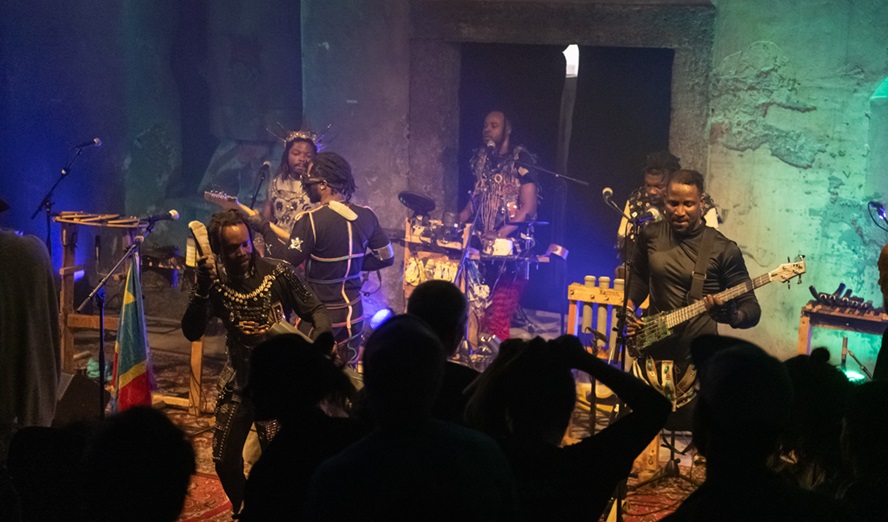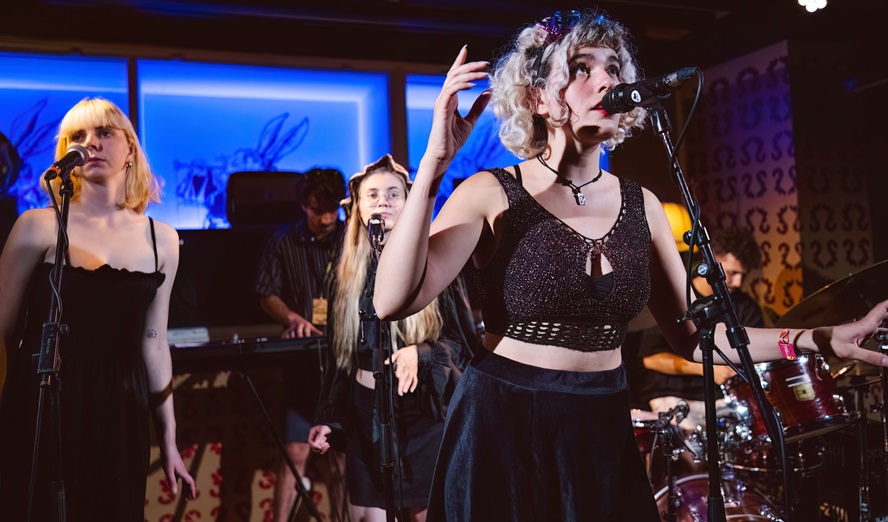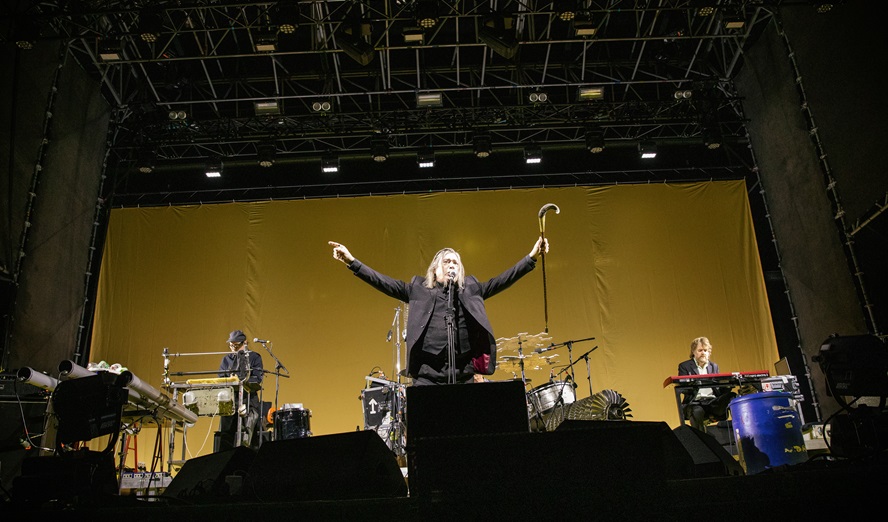Chor Guan Ng is a Malaysian artist and the artistic director of Toccata Studio in Kuala Lumpur. Toccata Studio’s most recent project is called »2020: I’m from 2020«. It is a multidisciplinary performance exploring ideas of change and cooperation within the topic of future thinking and a background story with a sci-fi twist. It is described like this: »To make 2020, you need 1 past, 1 present, 1 future, a generous dash of human experience, a sprinkling of human emotion, then stir clockwise 3 times.« skug met the composer, theremin player and passionate cyclist – who is currently artist in residence at KulturKontakt Austria – at the end of November in Weinhaus Sittl, a rather traditional Austrian pub just opposite the rhiz where he will perform for Salon skug on December 20, 2016.
skug: How did you develop your musical skills?
Chor Guan Ng: I am the first musician in my family. By the way, Ng is my surname, I am a fourth-generation Chinese. But I consider myself Malaysian. My parents gave me the opportunity to take percussion lessons at a private music school at the age of three and a half years. At the age of five I wanted to learn to play the piano, so I always went to school to play, because we didn’t have one. At the age of nine I quit playing piano because I was very active in sports, I played ping-pong, basketball, badminton, volleyball. And, you know, it was in sports where I learned a lot about teamwork. When I attended high school, my mother recognised that I still had a passion for music, so she bought me a second-hand electronic organ. In my hometown Klang I started to play the alto horn and later mellophone in a concert band. I already conducted at the age of fifteen, so I was the youngest conductor in school. After high school I learned and played the French horn in an orchestra and pursued my music studies in Kuala Lumpur. Later I studied composition, music notation and scoring in London. But I found out that as a musician I do not like to follow a score, I realized that I would rather improvise.
Could you explain your approach to improvisation?
I relate improvisation to ball sports, you pass the ball very quickly. Actually, I started to improvise in 2006, when I worked closely with theatre and dance. My sister went to ballet classes and I was curious what she was doing there. I was also asked to be a dancer but I could not image wearing these tight clothes. Somehow I like to work with dancers a lot, because it is a very organic language. Sound and physical movement are communication tools beyond our languages. Every time I attended a dance rehearsal I played my music and it was a beautiful opportunity to try out new things, I liked the moment of creating, this amazing chemical reaction between dance and music. Last year, for example, I worked with Tanztheater Wuppertal – Pina Bausch. This week I worked with dancers from Susanne Linke in Trier. Dance movements to me are like a musical melody. A melody we can see with our eyes.
How did you get to know your main instrument theremin?
I taught myself the instrument in 2009 and it felt like a dream come true. It is like an astronaut’s instrument, the sounds are floating. In the 20th century it was all about experimentation, leading to free improvisation. So now there are all kinds of composition techniques. I would like to archive the 20th century by using music. The composition »Space Age« is a tribute to the instrument theremin.
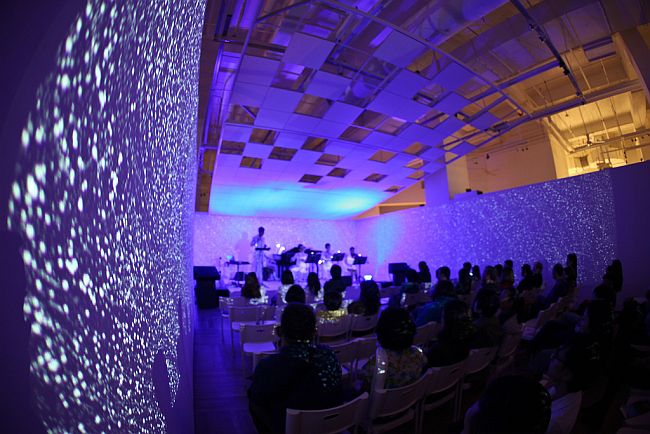 photo still »Space Age« © Hong Terence
photo still »Space Age« © Hong TerenceCan you tell us something about your piece »Space Age«, first staged in 2010 as »Space Age: A Journey Like Never Before«, and restaged in 2013 as »Space Age: The Phantom Power«? Were you inspired by minimal music?
When I was young my dream was to be an astronaut, an inventor, a scientist. Today I am none of them but it gives me a different perspective on composing. One hundred years ago the English composer Gustav Holst wrote a suite called »The Planets«. Since then there have been only a few orchestral pieces that deal with the topic of astronomy. A quite classical way to present my piece »Space Age«, which is about 50 minutes long, is with eight musical movements. It consists of different compositional techniques, including a graphic score for interpretation. It is not only about outer space, it is about space transformation. Each musician represents a different music group, like wind instruments, brass instruments, percussion instruments, electronic instruments.
You also play the theremin in a band called FUGU.
We play free improvised music. We are a duo, the violin player, who is also Malaysian, Fung Chern Hwei, lives in New York.
Are emotions important to you, for instance as expressed in little, personal songs?
I did, but in a very casual way, I didn’t publish these pieces.
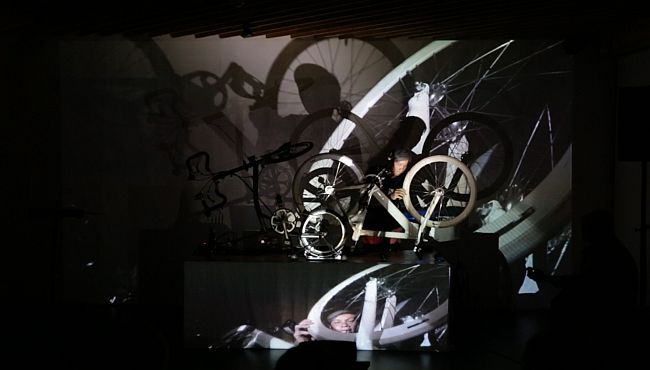
»RevoEvo«
Do you have time for sports now?
I do cycling, I commute by bike. So I cycle from Schloss Laudon now, where I have my KulturKontakt Austria residency. And cycling is even faster than taking the train. In fact, did you recognise that cycling is like moonwalking, don’t you think so? And in some performances I also use my bike as a musical instrument. I developed a bicycle performance called »RevoEvo« dealing with this trend of recycling and revolutions. And for this performance I collect sounds from the city I am in. Then I use these samples, these field recordings during the performance while I play on the bicycle, combined with visuals from another artist. These performances tackle three things at once: environmentalism because the performance is inspired by cycling, live performance because the audio and video are raw material manipulated live during the performance, and documentation because the collaborators intend to document cities and represent them via the aesthetics of artists.
Another invention of yours is the »Mobile Phone Orchestra«. Could you tell us something about it?
Between »Space Age« and »RevoEvo« I created the »Mobile Phone Orchestra«. My 2011 resolution was to make my life more environmental-friendly, so I started commuting by bike. My first trip was from London to Bonn. It was in winter and it took me seven and a half days. I got a scholarship from the Goethe Institute for a one-month stay in Bonn. It was interesting because I am originally from a tropical region. And I didn’t see a lot of people using the bicycle during that season. This experience totally opened my ears again to the sound of mankind, like the everyday sounds and noises produced by people, the environmental sounds. I had the wish to record all these sounds and give them away as a souvenir. Because the sound of one particular spot or space will change after five, ten or twenty years. So I would like to archive sounds and give them back to the people. But to get back to the Mobile Phone Orchestra: The audience is the orchestra, engaged in social music making. During the performance, an accessible group experience, they turn their mobile phones into musical instruments by using a Soundcloud link. I had a version where I showed different colours related to the prepared sounds they should use. Green sounds, for example, I recorded in the forests. I wanted to remind the people in the audience that they are the ones who create noise and that they have to care about their (not only sound) pollution. Everyone is creating his/her own noise marks. We have to take care of nature and listen carefully to our environment.
Speaking of rain forests, there are still many rain forests in Malaysia, but they have been destroyed because of the international palm oil production.
There are still many, but you are right, many have been cut down already. This is so stupid. It seems the businessmen and the government are just going for profit. Malaysia is also a petroleum country. But now we are also one of the biggest palm oil countries. In so many products you can find palm oil. And Malaysia also produces rubber, the best condoms are made in Malaysia.
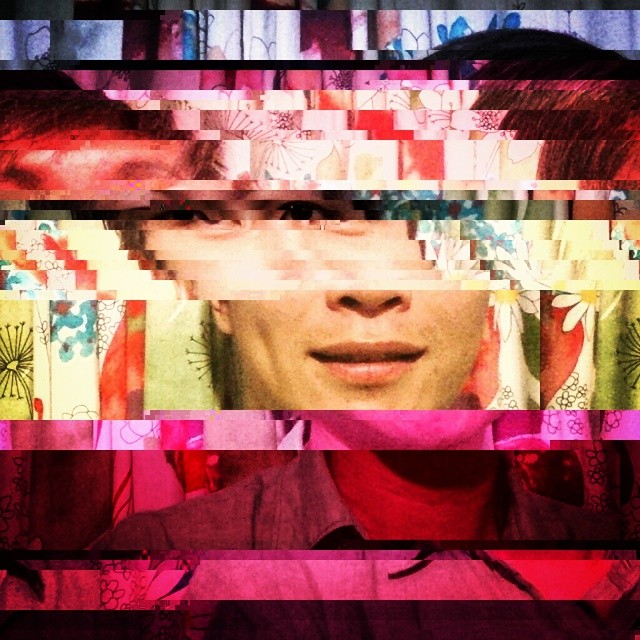
Chor Guan NG © Chor Guan NG
Are there still a lot of indigenous people living in Sarawak?
There are some protected regions. East Malaysia is divided into Sarawak and Sabah. In Sabah there are mountains and a national park, but in Sarawak most of the forests are turned into palm oil plantations. They even change the terrain because the palm oil trees need elevations. This is a very bad situation, not only for the local soil. This is why I created the Mobile Phone Orchestra to remind the people of these circumstances. One amazing situation occurred in South Korea, where I was invited by UNICEF. I visited a fishermen’s village. Between two islands there is a concrete bridge. If you stand in the middle, you hear two different wave sounds. On one side you have a very fine wave sound, on the other you have a splashing because of the big stones. I recorded this rough, amazing sound. When I revisited this place again, this unique sound was gone because of a tsunami.
Is there any racism against the native people when they are expelled from their natural habitat, the forest? Are there conflicts between the Chinese minority and the Malay?
Not really. But they try to create a division politically. Let me introduce the situation of the population: We have about 50 per cent Malay, then 22 per cent Chinese, less than 7 per cent Indian and about 12 per cent natives. I, for example, am a fourth-generation Chinese born in Malaysia and I never had a Malay friend until the age of 22. We live together but we are somehow separated. That is a pity, because I would say Malaysia is a paradise in terms of temperature, the climate, the food. We don’t have earthquakes, volcanos or tsunami, only floods. Last year I created the project »2020«. It is a project that wants to unite people. »2020« is a five-year project and offers its audience a new way of accessing and experiencing futuristic contemporary art.
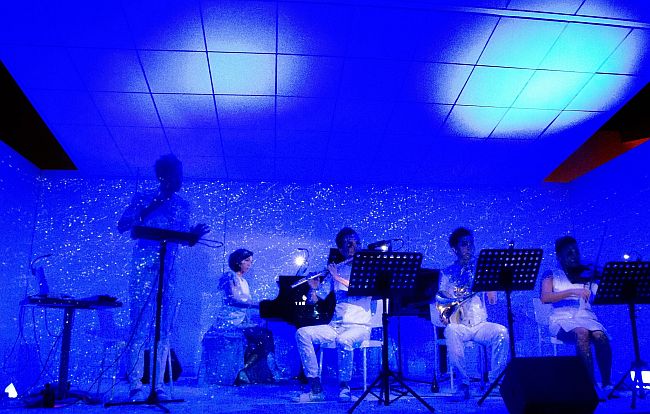
photo still »Space Age« © Alvin Shen
To come back to your projects, what is the story behind Toccata Studio, your performing arts production collective?
I am the artistic director, a co-founder with Tan E-Jan. We started in 2012. Toccata is an Italian word and means touch, the feeling of touch. In a musical context, such as toccata and fugue, it also means improvisation, but for me it actually relates to the dialect of my great-grandparents and means floor (tocca) and step (ta), and as such to be very grounded. The third meaning, in Malay, is elders (toc) and said (cata). So it means the elders said, like advice from the oldest and wisest people. In Malaysia we learn a lot of languages and they are all intertwined and interlocked. So a word can have a lot of meanings. We are running Toccata Studio by ourselves, pretty much self-funded. Sometimes we get a little bit of funding, private and from the ministry of culture, but there is no long-term sustainability. It is hard to survive. One reason why I started this studio was that when I got back to Malaysia from England in 2006 I worked a lot with dancers, theatre and filmmakers. I saw that they were separated, so I wanted to create a place where they all can meet and work together.
And now at Toccata Studio you focus on the project »2020«?
We have a series of round tables at the moment. We invite people from age 17-70 with different professions. First we split them into different age groups and they talk about how they contribute to society. Then they are mixed to have intergenerational discussions. I think this exchange is important because artists are often too much in their own art zone.
What are your religious beliefs?
The national religion in Malaysia is Islam. I was born into a family of Taoists and Buddhists. My father practices Taoism very seriously. He believes in god, the laughing Buddha, Guan Yin, the goddess of mercy, and also Ji Gong, a famous Buddhist monk. I myself am a free thinker and respect all religions. There is a Chinese proverb that says: If you believe, then it will be. If you don’t believe, it will not happen. I think I have this philosophy. Modern Taoism is a mix of a lot of things. For example, if you do bad things, you get punished. When you die, you go to hell. They have 18 floors of hell. Heaven is a different story …
